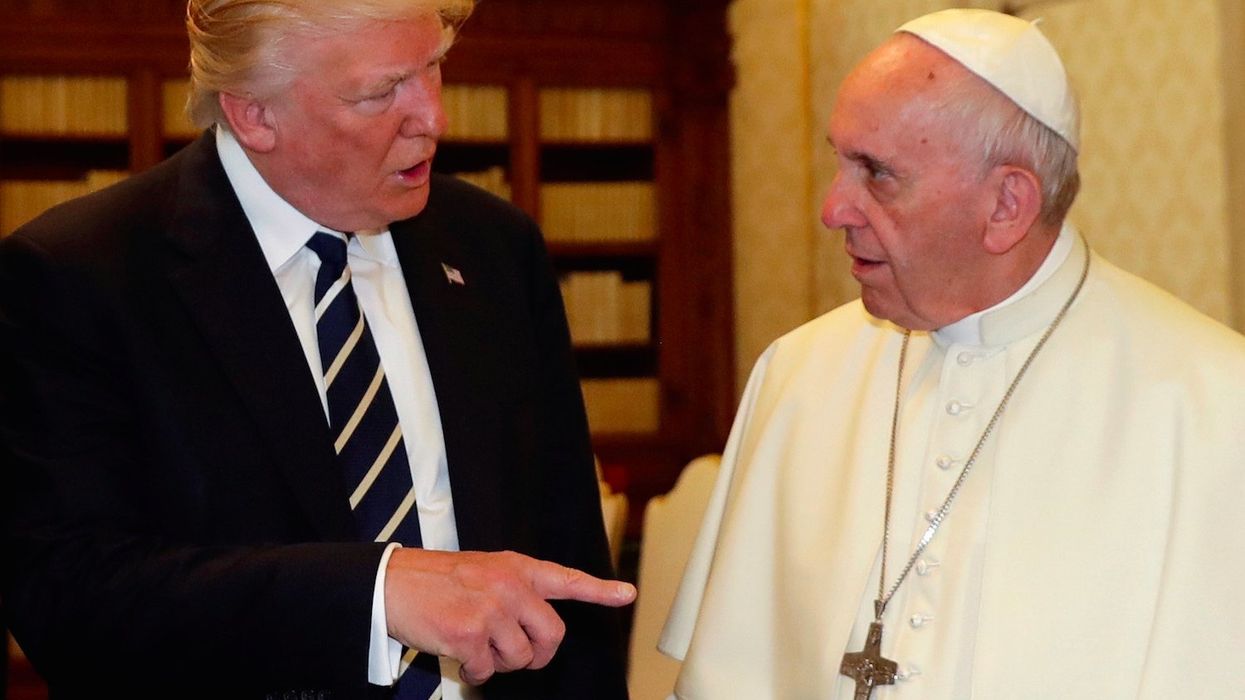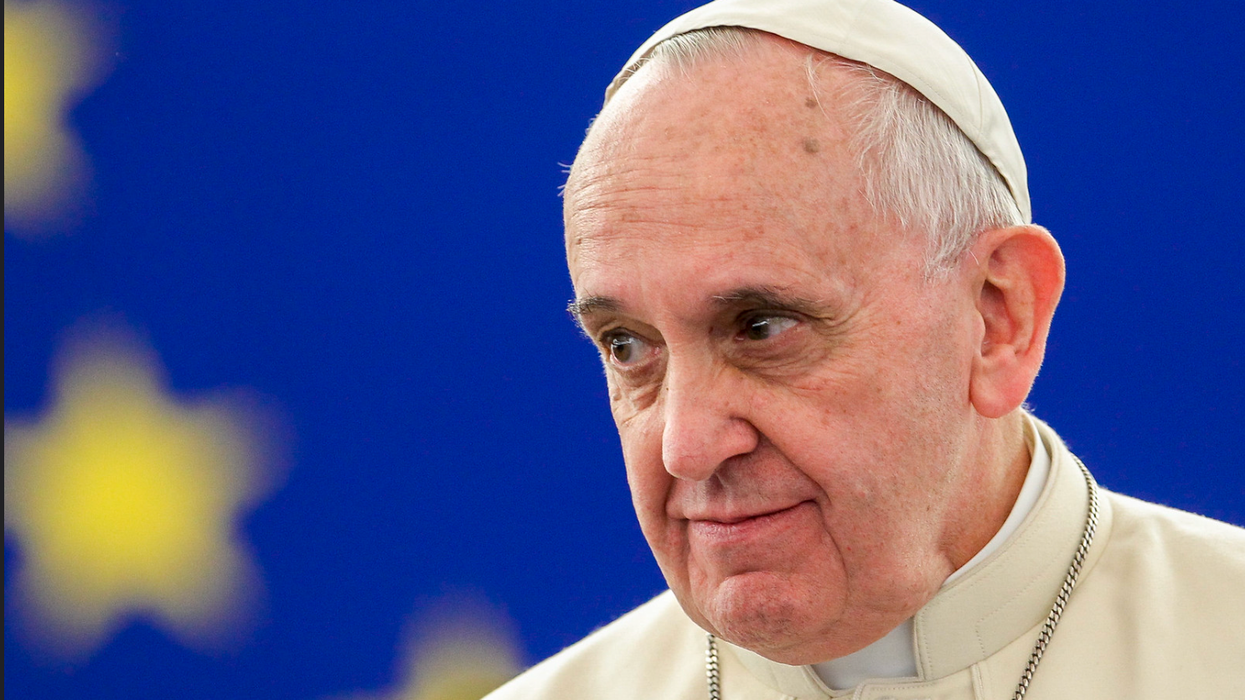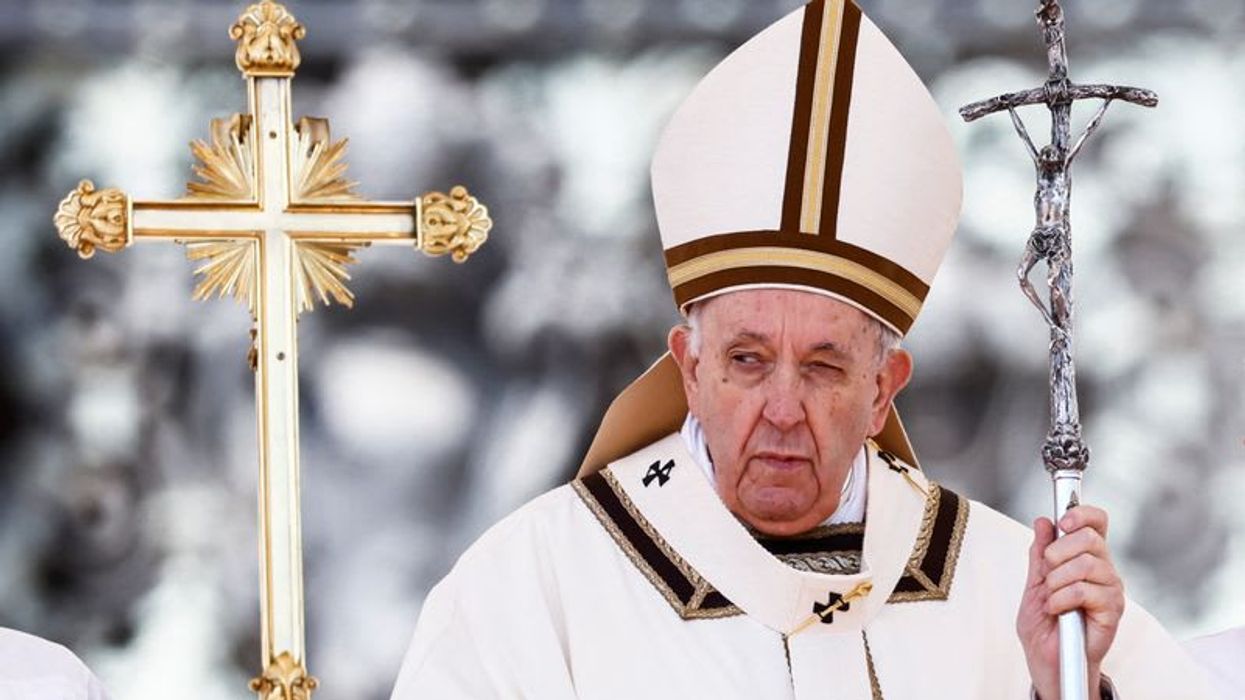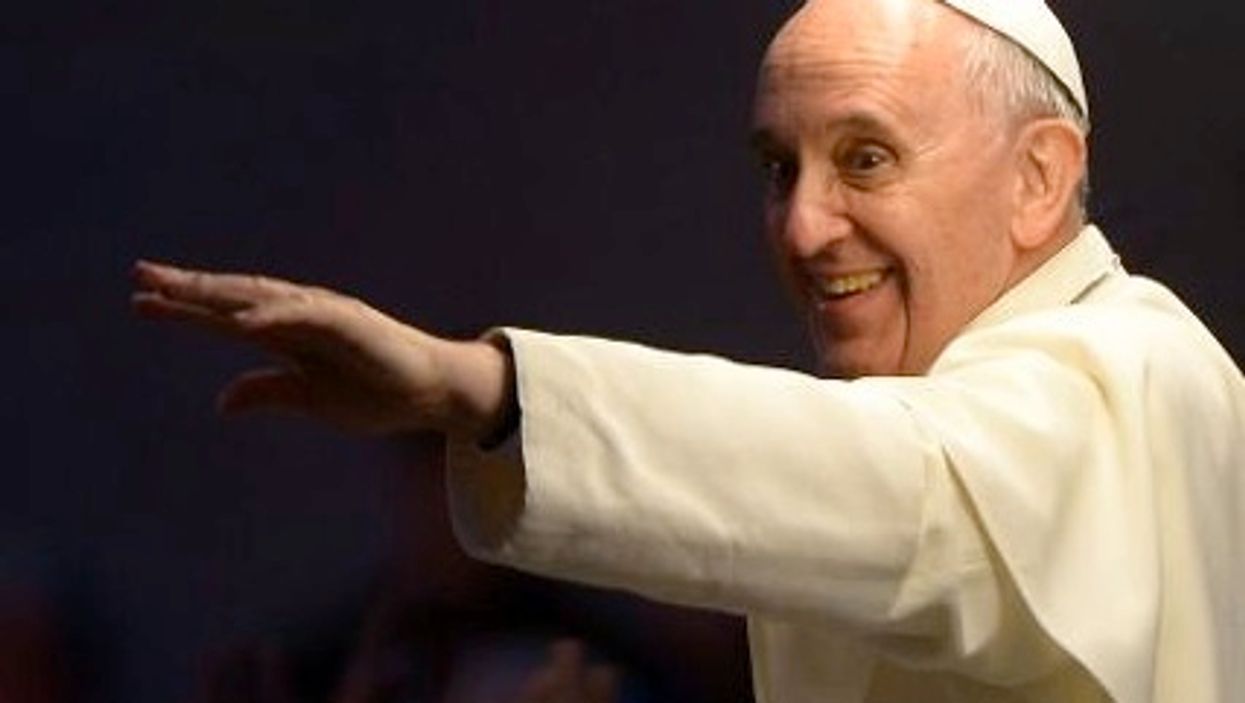Francis And Trump: A Tale Of Two Leaders
The blue suit and blue tie amid a sea of mostly black-garbed mourners did stand out, not that President Donald Trump ever blends into the background or wants to. But the man being laid to rest in the simple wooden coffin was the leader whose legacy loomed largest. The hundreds of thousands who made their way to the Vatican to pay respects to Pope Francis proved that.
A world with a short attention span and more than a few folks who loved the movie Conclave is already guessing who will next occupy the chair of St. Peter. Before the betting starts, however, it might be useful to reflect on how leaders can exert influence over those who look to them for guidance — for good and for ill.
Character counts.
It’s not as though the doctrine of the Catholic Church changed under Pope Francis. Its rules against abortion remain. The church will not perform marriages for same-sex couples, and if you notice the lack of women among the College of Cardinals, that is no coincidence.
Yet few would deny that this Pope changed perceptions of Catholicism, even to those who, unlike me, were not raised in the faith.
It’s just as true that how people view America has shifted under this president. And, what’s sadder, how we view ourselves and our fellow Americans has changed. It’s a place where you can turn in neighbors you suspect are undocumented or teachers you believe are too “woke,” a term few can accurately define but many don’t hesitate to weaponize.
Social media more than ever is a toxic stew of insults rationalized by the senders because, well, the president does it. Just review his Michigan speech this week, marking his first 100 days in office. Trump mocked the appearance of his predecessor, Joe Biden, rather than show concern for the challenges Americans are facing.
It wasn’t exactly following the advice of Pope Francis, who urged priests to be “shepherds with the ‘smell of the sheep,’” close to their flock.
Pope Francis elevated those society often shuns: the poor, migrants, prisoners, people with disabilities — especially, it seemed, children. He spoke about issues such as climate change and immigration, ones that most affect the dispossessed. He welcomed LBGTQ Catholics and clarified Catholic teachings on the death penalty, making opposition to it an absolute. Those moves reflected the consistency I have admired in a church I also criticize for its failings.
In contrast, the billionaires with a front-row seat to Trump’s inauguration reveal his priorities. Trump himself, in a recent interview in The Atlantic reveled in how he has brought the high-powered to heel. “It’s just a higher level of respect. I don’t know,” Trump said.
President Trump has embraced power and the powerful — and many Americans have followed his lead. It makes perfect sense that Elon Musk, the president’s right-hand man and heedless slayer of government programs, believes, as he said, “The fundamental weakness of Western civilization is empathy.”
A quote in that same Atlantic interview shows how intoxicating that power is to the man who bragged about retribution in preelection campaign speeches: “I run the country and the world.”
We, meaning, apparently, every person on earth, are subject to his will and whims.
What a long list of those left to suffer, from students punished for speech to young U.S. citizens sent out of the country, including one, according to reports, being treated for cancer.
While Pope Francis saw the world as his parish, Trump shrinks America’s global leadership, dooming the sick and hungry with his decapitation of the U.S. Agency for International Development.
A program to counter AIDS, one started by another Republican president, George W. Bush, has saved millions of lives. But it was orphaned by the Trump administration with nary a peep from congressional Republicans whose mission is pleasing this president.
The world’s richest country is being seen as poor in goodwill and generosity — the qualities that made America great in the eyes of longtime allies who are deserting it and many weaker countries now looking to trade their essential goods and minerals with more reliable partners, ones who at least pretend to care.
This “America First” administration has turned on its own, with cuts to AmeriCorps being fought by attorneys general across the country. Snatching back already approved funds from the agency for volunteer service has halted projects in states and cities, including Hurricane Helene recovery efforts in western North Carolina.
The surprise in recent polls that grade Trump’s first 100 days isn’t that his numbers are so low but that the majority of Republicans still cosign such a careless and cruel agenda.
As evidence that the president truly cares about the least of these, his administration and some of his staunchest supporters, white evangelicals, might point to his order “establishing a task force to eradicate anti-Christian bias.”
But not only does that order ignore other faiths and the Constitution, which promises freedom of and from religion, it also leaves out Christians who don’t worship him. Why else would law enforcement surround and arrest a pastor in the Capitol Rotunda as he and others prayed to protest drastic cuts to social safety net programs in a proposed GOP-led budget bill? This White House has not been shy about highlighting the celebrations of his own Christian followers in buildings that belong to all Americans.
Pardoned criminals, even violent ones, got better treatment than the Rev. William Barber on Monday.
Yet, in a statement by Barber and Rev. Jonathan Wilson-Hartgrove after both were released, they did not express anger or promise retribution. In fact, they said they appreciated the Capitol Police and had prayed “with them and for them” as they dealt with the trauma of January 6, 2021.
“We thank them for their service and have reassured them that our objection is not to them doing their job.”
But the statement left no doubt about why they were there or that they would return.
“As Christian preachers, we are also public theologians. When someone dies from poverty and a lack of healthcare, we cannot lie and say, ‘God called them home.’ We have to tell the truth. They died because we live in a society that has chosen not to care for them.”
Both a lesson and rebuke Pope Francis would recognize.
Mary C. Curtis has worked at The New York Times, The Baltimore Sun, The Charlotte Observer, as national correspondent for Politics Daily, and is a senior facilitator with The OpEd Project. She is host of the CQ Roll Call "Equal Time with Mary C. Curtis" podcast. Follow her on X @mcurtisnc3.
Reprinted with permission from Roll Call.












